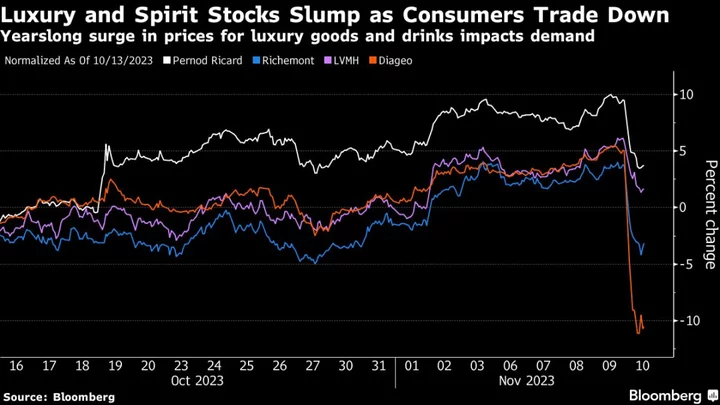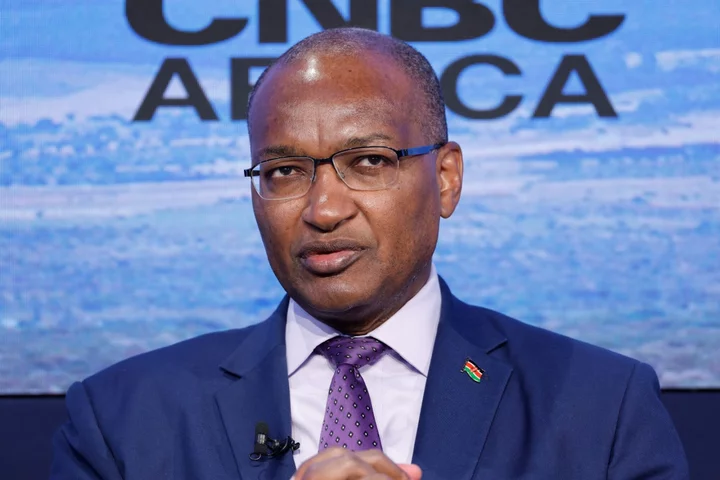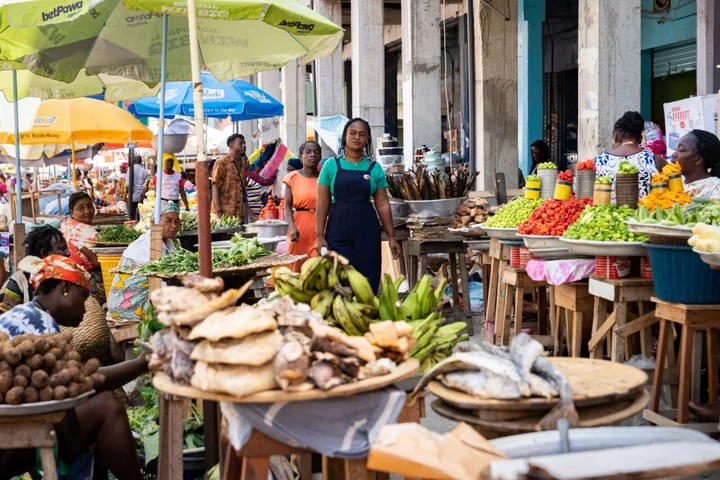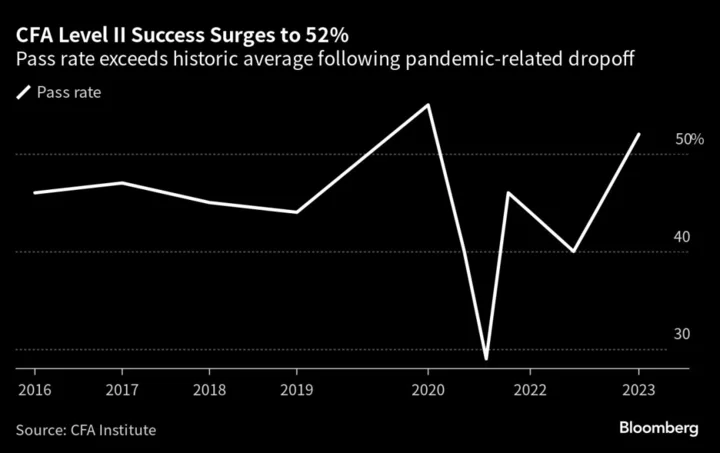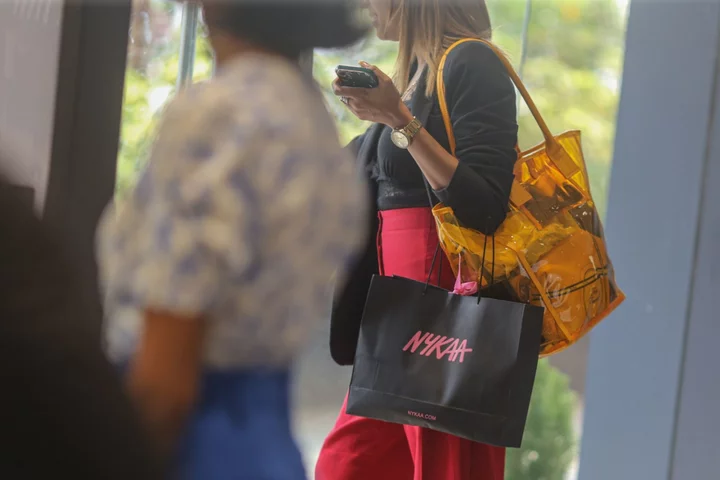Shoppers are rebelling against higher prices for everything from Piaget watches to Don Julio tequila, wiping off $45 billion from the value of the world’s biggest drinks and luxury groups.
In a wake-up call for companies pushing ever-higher prices, the drinks and luxury sectors slumped Friday led by a profit downgrade from Diageo and a warning from Richemont that luxury prices won’t rise during the next two years as central banks raise borrowing costs.
“We will see a softening of demand across all categories, all asset classes, whether it’s housing, art or automobiles, because that’s the goal of the reserve banks,” Richemont Chairman Johann Rupert said on an analyst call after a surprise fall in earnings as luxury watch revenue fell. “Interest rates will remain higher for longer than people think.”
Although the US economy is doing better than expected, there are signs of a softening labor market and sagging consumer confidence as the burn from the highest inflation in more than two decades is felt by consumers. Europe is lagging further behind while sentiment in the Asia-Pacific region is hampered by a disappointing recovery in China. The messages from the makers of handbags, watches and spirits point to a muted Christmas and New Year — typically the most important season for drinks makers.
“You saw premium and luxury grow, while the middle was getting squeezed,” said Till Dudler, managing director at consultancy firm Accenture. “Now we’ve seen aspirational luxury getting squeezed too. The pricing game is ending.”
For much of the past two years, luxury brands from Chanel to Christian Dior have been able to increase product prices without penalizing sales as their consumers were relatively insulated from the inflation squeeze that hurt mass-market retailers. Consumer goods companies more broadly grew sales entirely through higher prices, justified by input cost inflation which has now partially eased off.
Cracks Appearing
The spirits industry has previously argued it’s relatively recession-proof because people drink in both good times and bad. Diageo says its more expensive products are affordable luxuries that consumers want to hold onto. But since the start of the year, cracks have begun to appear. At LVMH Moët Hennessy Louis Vuitton SE, US consumers are pushing back against price hikes at the cognac brand Hennessy which has weighed on sales. Demand for LVMH’s Champagne brands also softened.
Read More: Tougher Times for Luxury Brands Separate Winners From Losers
Diageo Chief Executive Officer Debra Crew said Friday that drinkers in Latin America and the Caribbean, which represents 11% of its business, were trading down to cheaper brands. Retailers, grappling with higher interest rates, are also increasingly cautious about restocking. The disappointing performance led to a downgrade on the operating margin target in the medium term, suggesting Crew thinks Diageo will need to spend more on marketing to grow sales.
“Our concern is that Diageo is facing a widespread retrenchment in premium spirits consumption caused by macroeconomic pressures around the world with an unknown end date,” said RBC analyst James Edwardes Jones. Reflecting its faith in “premiumization” and consumers “drinking better” — a mantra of its late former CEO Ivan Menezes — recent acquisitions such as Don Papa rum have also focused on the more expensive end of the spectrum.
US-based drinks companies traded down Friday in an echo of Diageo’s record plunge of as much as 16%. Jack Daniel’s parent Brown-Forman Corp. fell as much as 4% in New York trading, while Svedka vodka distributor Constellation Brands Inc. was off 1.3%.
The trick for consumer-goods companies is having a range of price points for consumers to buy into — and allocating marketing investment in line with economic sentiment. For example, L’Oréal’s mass-market division — which includes brands like Maybelline, which sells mascara for $10 — grew 13% last quarter compared with 3% for its luxe unit.
Still, some luxury brands are undeterred. Chanel, which is closely held, said last month it had hiked product prices in China with the so-called flag bag model in a medium size now selling for 80,500 yuan ($11,043).
Read More: Chanel Hikes China Prices as Concerns About Luxury Demand Mount
“I would not say ‘premiumization’ is dead because it will be the growth driver for most companies over the medium term,” said Will Hayllar, managing partner at consultancy OC&C. “But it’s going to be an era when it is harder and slower.”
--With assistance from Thomas Mulier, Thyagaraju Adinarayan, Jonas Ekblom and Andy Hoffman.
(Updates with shares in 10th paragraph.)

